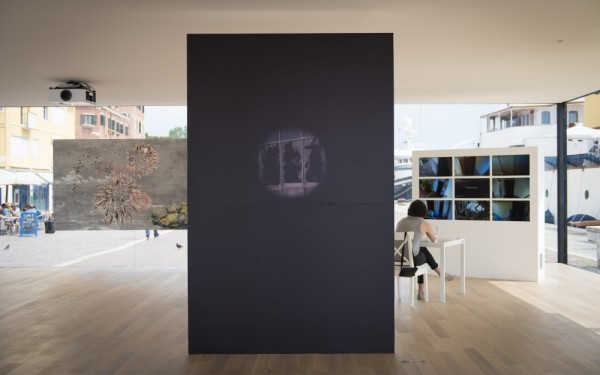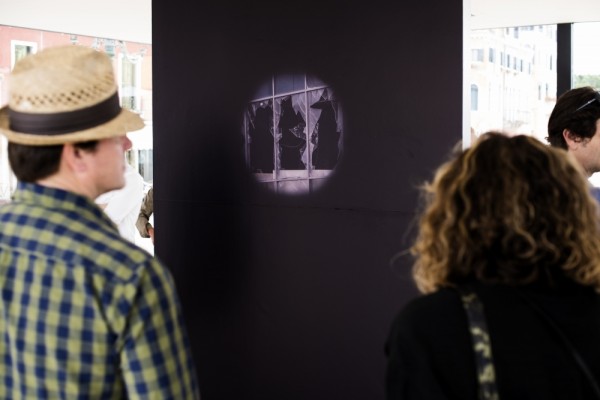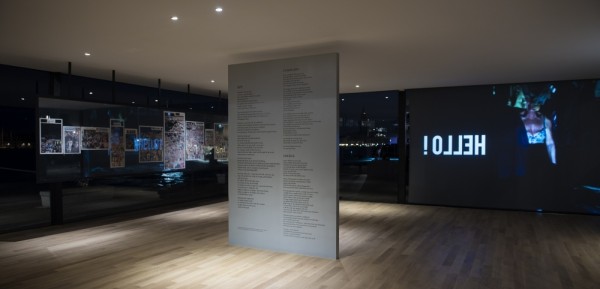Tuesday through Sunday from 12:00 until 21:00
Closed Monday
Admission is Free

Mykola Ridnyi & Serhiy Zhadan
Year of realization: 2014
Technique: C-print and printed wall-text
Size: 280 x 180 cm (c-print), variable (text)
Blind Spot by Mykola Ridnyi and Serhiy Zhadan consists of two distinct elements, poetry by Zhadan and a monumental printed image by Ridnyi. Together they form two sides of the same medal, two ways to see one story. Ridnyi has found the motif for his image on the Internet and has sprayed it over with black paint, leaving only a peephole that creates a limited, partially erased view of the original photograph. What remains is an abstraction of the reality and violence in the picture. Contrary to the black-sprayed image, the poems of Zhadan give a face to the violence. Each poem tells a personal story, drawing a portrait of both real and fictional figures living through the war in eastern Ukraine. Blind Spot attacks the way reality is simplified in the media and on the Internet, where images are used to tell stories but too often alienated from their real-life context.
Thus blind spots are created in the way we look upon the world, and our sense of reality is constructed through a selective view and limited knowledge. The sprayed image is a metaphor for the power of propaganda, a conscious act of erasing parts of the image to show only that which fits the story. The poems individualize the victims of violence, and in these combined approaches Blind Spot resists any narrow narratives that provoke the radicalization of thought.
“Propaganda produced by a machine of war leads to blindness of society. It represents a binary vision that creates ‘us’ and ‘them’, ‘brothers’ and ‘enemies’, ‘citizens’ and ‘outsiders’ with no real basis for these oppositions. The reality of the present day creates an undifferentiated future, pushing it further and further. In other words, the war replaces future with a projection of THE endless present as a traumatic norm the society lives with. In this context, the hope for peace for the majority is subordinated to the military rhetoric: everyone talks about peace, but no one imagines what will become of Ukraine after the war. Will it become a country of freedom of speech or of suppression of civil rights, a country of social justice or neoliberal reforms, national and ethnic tolerance or hatred? If there is no hope nowadays, but only lost lives, burned houses and destroyed cities, it means that the future or its absence depend on the answers to the questions that both society and the state are responsible for.”
Mykola Ridnyi
Serhiy Zhadan



All works: